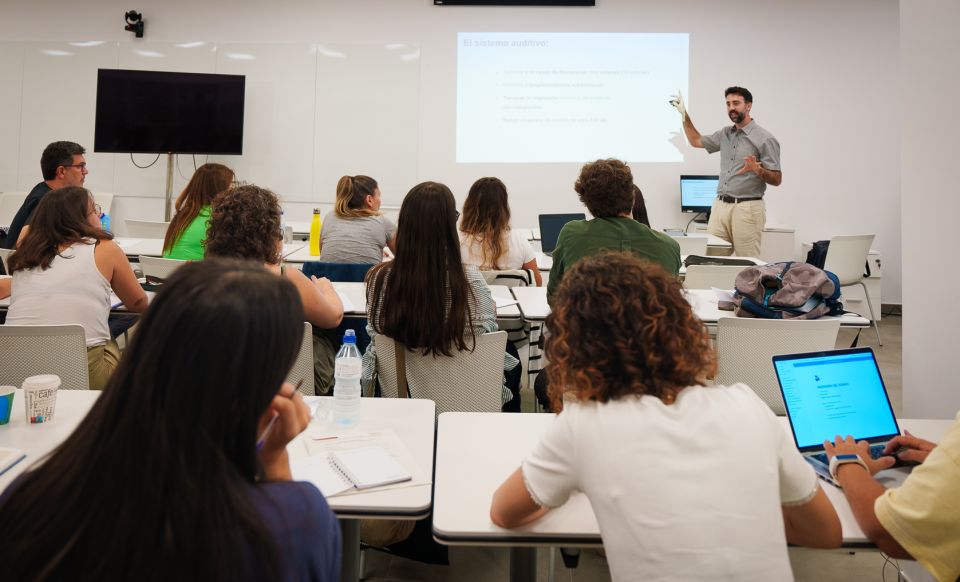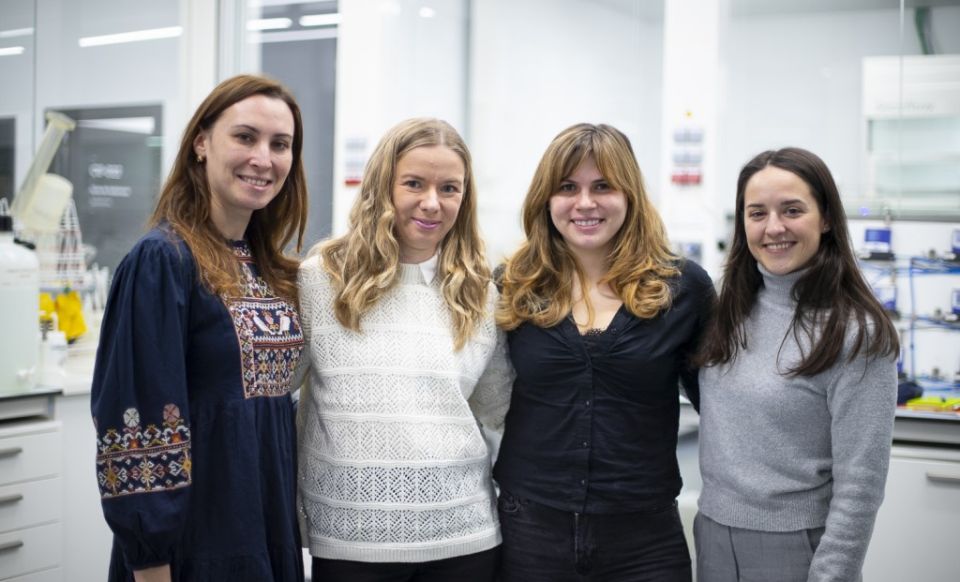UVic-UCC News
The University in action!

A large proportion of Catalonia's indigenous continental fish are in decline or at risk of extinction
Global warming and change across the planet is affecting populations of sea and freshwater fish. A good example is the 29 freshwater fish species native to Catalonia, a large proportion of which are experiencing decline or are at risk of extinction. All of these species, including the sturgeon, trout, barb, eel, and whiting, have been affected to…

The CT BETA presents the results of 18 years of monitoring a slurry fertilisation trial in Osona
As part of an Annual Technology Transfer Plan Seminar in Torelló, the BETA Technology Center at UVic-UCC presented the results of a trial it began in 2006, which examines the effects of fertilisation with pig slurry on double-annual cropping systems in dry farming conditions in the Osona region. The study focuses on evaluating the effects of…

Biofertilisers obtained from livestock manure can compete with conventional fertilisers and have less environmental impact
The biofertiliser products that have been obtained in the biorefineries of the FERTIMANURE European project, coordinated by the BETA Technology Center at the University of Vic - Central University of Catalonia (UVic-UCC), have agronomic performance levels equivalent to those of conventional fertiliser products, and similar environmental impacts,…

The bachelor's degree in General Audiology at the UVic-UCC Faculty of Medicine becomes the first official degree in this field in Catalonia and Spain
The Catalan University Quality Assurance Agency and the Spanish Council of Universities have approved and ratified respectively the resolution that recognises the official status of the bachelor's degree in General Audiology is taught at the Faculty of Medicine of the University of Vic - University of Catalonia (UVic-UCC). As a result, the…

The SIMIL Programme, coordinated by the BETA Technological Center, expands its range towards climate change and digital transformation thanks to an Erasmus+ project
The SIMIL programme, coordinated by the BETA Technological Center at UVic-UCC, will continue its work for another two years. This work will expand to include a wider range of areas related to climate change and digital transformation, after focusing on challenges and solutions related to urban solid organic waste management in 2023. The SIMIL…

The president of the Parliament of Catalonia, Anna Erra, gives a reception to mark the tenth anniversary of the federation agreement which created UVic-UCC
The president of the Parliament of Catalonia, Anna Erra, gave a reception this afternoon to mark the tenth anniversary of the federation agreement between the Balmes University Foundation (FUBalmes) and the Bages University Foundation (FUBages), which led to the creation of the University of Vic – Central University of Catalonia (UVic-UCC). This…

UVic-UCC will offer the bachelor's degree in Global Studies, two advanced vocational training programmes and a new master's degree in the 2024-2025 academic year
The University of Vic - Central University of Catalonia (UVic-UCC) will launch the new bachelor's degree course in Global Studies in the 2024-2025 academic year, which will be taught in the Faculty of Business and Communication Studies (FBCS), and joins the University's 41 programmes that are currently available. Among the new additions…

The "#ScienceForUkraine" initiative celebrates two years as an NGO helping Ukrainian research staff
The "#ScienceForUkraine" initiative, which arose spontaneously in the academic world in order to support Ukrainian research personnel after the Russian military invasion of Ukraine on 24 February 2022, has celebrated its second anniversary, and has been officially established as a Non-Governmental Organization (NGO) based in Latvia. One…